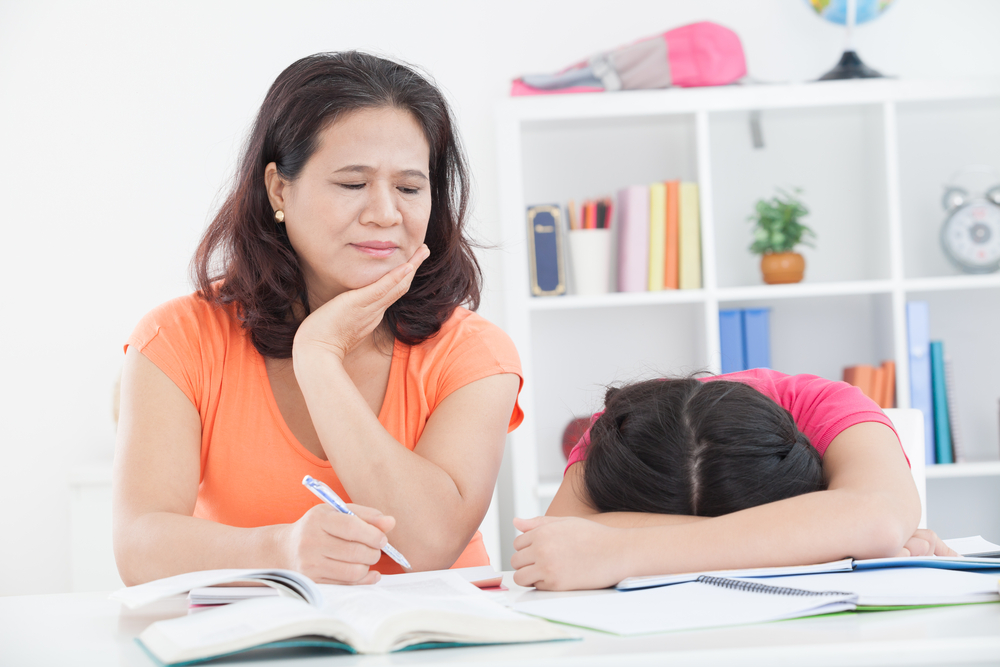
The primary school leaving examination (PSLE) for our primary school graduates is the most dreaded annual exam for Singaporean parents and students alike.
Although it is their kids who will be sitting for the exam, parents tend to get stressed up over the PSLE preparation. According to research by the Institute of Policy Studies (IPS), over half of the parents (60%) surveyed reported feeling anxiety as they do not know how to help their child prepare for PSLE.
There are lots of pull and push factors that parents experience during the PSLE year. We are all anxious for our children to perform well academically in the hopes that they will get into a good secondary school. Yet, we are also mindful to safe-guard our parent-child relationship. Hence, preparing for PSLE can be an arduous experience for mums and dads.
How to Stay Sane During Your Child’s PSLE Year
We feel your angst, parents.
Here are 5 tips to help you keep your sanity as you help your child prepare for the PSLE exam.
1. Determine what kind of PSLE experience you want for your child
By this time, your child knows that there is a milestone exam on the horizon. They would have heard stories from their seniors, received gentle nudging from school teachers to study hard this year or shared stories about their older siblings. The pressure is on for your primary six child.
However, as a parent, your child will take the cue from you on how they will experience the year they are preparing for PSLE. Will it be a year filled with tuition classes and assessment papers? Or will there be a balance between academics and fun?
2. Define what success means for your family
There is a lot of pressure resting on the shoulders of your 12-year-old with everyone talking about PSLE preparation. By examining and understanding what success in PSLE means for you or your child will help you and your family stay on course.
What are some of the success goals you want to achieve? What does a triumphant outcome of PSLE look like for you (or your child)? Is it getting strong academic grades? What is your definition of strong academic grades (i.e. getting straight As)? Will it be entering a “prestigious” school? Or will you consider their effort and motivation in preparing for PSLE as elements of success?
Read also: Gifted Education Programme: An A-Z Guide for Parents
3. Explore academic options available to your child
Not all our children are academically inclined. Some are late bloomers, while others require extra pushes when it comes to their academic studies.
Fortunately, there are other pathways such as Direct School Admission (DSA) and International Schools that your child can choose to go on.
4. Establish a game plan to PSLE preparation
You know the saying that preparation is the key to success?
This is so true. And it will help alleviate some pressures if you have a strategy to deal with your child’s weaker subjects.
Here are a few tactics you can adopt to prepare for the PSLE:
- Establish a study plan with your child
- Set aside time for fun and relaxation for the family between the intense school terms.
- Watch out for signs that the pressure is too much for your child and have a plan of action to decompress.
- Arrange to tag your spouse when the pressure gets too much for you or if your spouse is better at handling a particular discipline than you.
5. It’s ok to get help
You don’t have to do everything by yourself during PSLE preparation.
Ask the school teacher to recommend study strategies for your child. Get a tutor if tutoring your child on your own is causing too much tension between parent and child.
Get a part-time helper who will do your household chores like cleaning or ironing. It’s ok to order take-outs some days of the week if it gives you more time with your child.
Read also: Exam Stress in Children: Warning Signs and Tips to Manage
We hope you find the above points effective in keeping you sane during the PSLE year. Share with us if there are any other tips that we have left out.
Best wishes to you and your child during the PSLE year.























